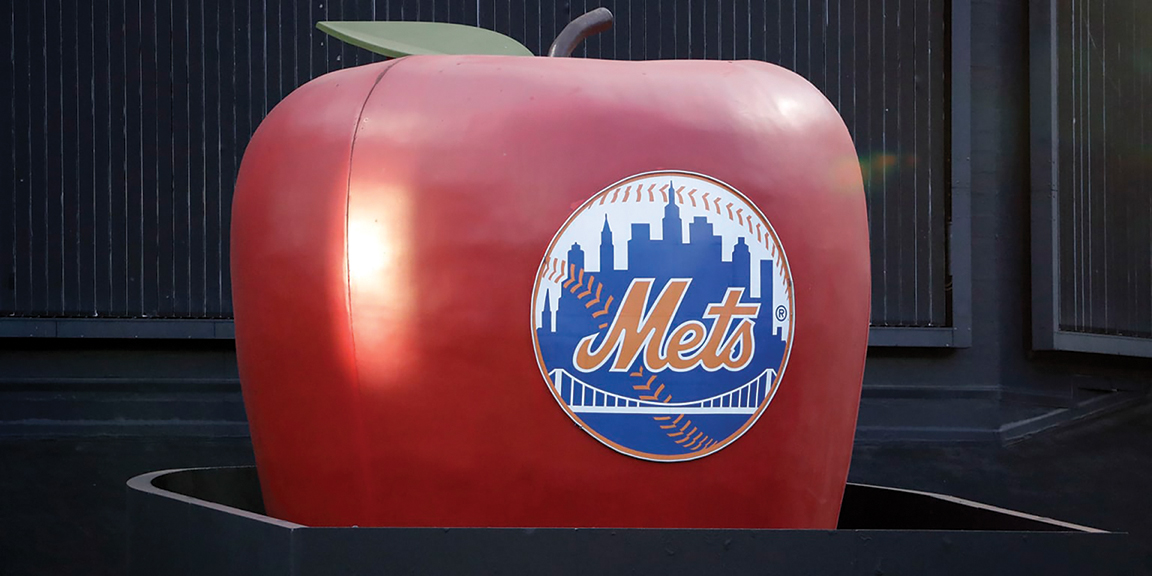On May 7, 2016, Bartolo Colon stepped to the plate. The 42-year-old Mets pitcher had become a fan favorite thanks to his warm personality, excellent pitching and utterly hapless hitting — he had spent most of his career in the American League where he had not batted. During that at-bat however, Colon connected with a fastball and launched it into the sky.
 As the ball arced into baseball history, longtime Ridgefield resident and Mets play-by-play icon, Gary Cohen captured the moment as only he could. “It‘s outta here,” he shouted his signature catchphrase as his voice cracked with pure joy. “Bartolo has done it. The impossible has happened.”
As the ball arced into baseball history, longtime Ridgefield resident and Mets play-by-play icon, Gary Cohen captured the moment as only he could. “It‘s outta here,” he shouted his signature catchphrase as his voice cracked with pure joy. “Bartolo has done it. The impossible has happened.”
Asked about the famous call recently, Cohen is characteristically humble. “I think that the mark of a good broadcast is not how it plays in a 10 or 20-second call,” he says. “It’s how it plays over the course of 500 hours during the season. Being a reliable friend and advocate and explainer and companion is far more important than the odd moment that goes viral.”
He admits though that there was something special about that homerun. “Here we are seven years on from that and we’re still talking about it, which is not about the call, it’s about the moment and the man,” Cohen says.
It was also at least a little bit about the call. Since 2006, Cohen has called games on SportsNet New York (SNY) alongside former Mets players Ron Darling and Keith Hernandez. The trio is probably the most popular broadcast team in baseball, and they’ve made the bright Mets moments over the last 17 years more enjoyable and the many rough moments more bearable. For his work, Cohen was recenlty honored with induction into the Mets Hall of Fame. “I grew up as a Mets fan in Queens, so the Mets have been part of my life since I was a very young kid,” he says. “To get to this point, 35 years later, where you’re being lumped with the greatest players and off-field personnel that the Mets have ever had, it’s phenomenal.”
 Cohen thinks the broadcast partnership between himself and Hernandez and Darling has resonated for a few reasons. “The Mets have always encouraged their announcers to be honest, which is not always the case with team broadcasts,” he says. An even greater factor is that when they started broadcasting games together, they each had limited experience working in television. “None of us really knew what we were doing, so we all were dependent on one another. That’s led to a booth where nobody needs to be the star. I work with guys who are bringing a lot to the table, and it’s mostly my job to set them up and push them to explain their expertise,” Cohen says.
Cohen thinks the broadcast partnership between himself and Hernandez and Darling has resonated for a few reasons. “The Mets have always encouraged their announcers to be honest, which is not always the case with team broadcasts,” he says. An even greater factor is that when they started broadcasting games together, they each had limited experience working in television. “None of us really knew what we were doing, so we all were dependent on one another. That’s led to a booth where nobody needs to be the star. I work with guys who are bringing a lot to the table, and it’s mostly my job to set them up and push them to explain their expertise,” Cohen says.
Born in 1958, Cohen was drawn to the Mets even though his father was a Yankees fan and his mother a Giants fan. “The Yankees were very staid and traditional,” he says. “It seemed as though the Mets were more inviting in terms of the way the ballpark felt and the sound of the organ. I imagine that’s what attracted me. I mean, it certainly wasn’t because they were a good team because they weren’t for the first few years that I watched them.”
After graduating from Columbia University, Cohen worked in the minor leagues before joining the Mets as primarily a radio announcer in 1989. He and his wife, Lynn, eventually moved out of the city to upstate New York, then drifted over the border to Connecticut. “It was pretty much a quirk. I was living in South Salem and wound up moving one town over to Ridgefield. That was in 1999, and I haven’t left since,” he says.
Cohen and his wife have three dogs and five children. Baseball season dominates his life from March until October. “During the offseason, I’m very much a homebody,” he says. His hobbies include reading — a recent favorite is the novel The Most Fun We Ever Had.
Asked for advice on having interesting conversations outside the broadcast booth, he offers a few thoughts. “If you ask my wife, she’ll tell you that I talk very little off the air,” he says. “I think it’s all a matter of being interested in what you’re seeing and interested in what you’re hearing. The best part of being a good conversationalist is being a good listener.”
For aspiring sports broadcasters, Cohen recommends going to games or watching them with the sound off and practicing calling them with a recorder. “The other thing is to read,” he says. “And I don’t just mean about baseball, read everything that you can get your hands on. That increases your vocabulary, it increases the breadth of your knowledge and makes you a more whole human being. Ultimately, if you want to be a broadcaster, you have to be yourself, and whatever you bring to the table in life is what you’re going to bring to the table on your broadcasts.” •